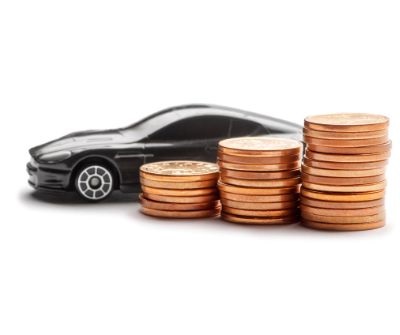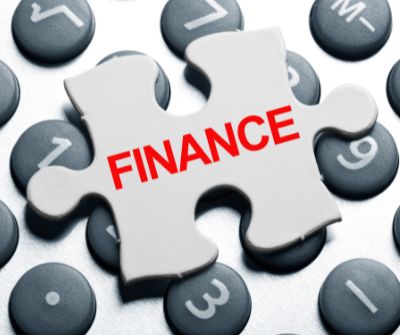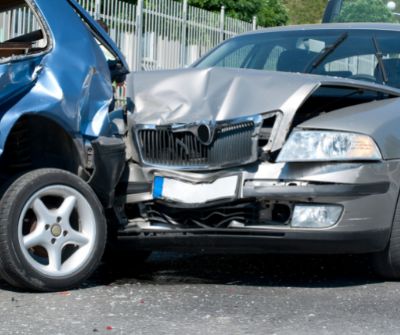Call Monday-Friday 9am - 6pm Closed Saturday & Sunday
Please select some policies.



Need Help? Calling from a mobile please call 0151 647 7556
0800 195 4926 / 0151 647 7556Do you have a question? or need help?
Call Monday-Friday 9am - 6pm Closed Saturday & Sunday,
The Personal Contract Purchase PCP Finance agreement is probably the most popular form of funding arrangement for new car buyers in the UK today. These styles of finance packages are heavily favoured by motor manufacturers and car dealers alike and with the likes of Ford Options and Peugeot Passports heavily marketed in showrooms across the country.

The basis of the PCP car finance arrangement is the same as a standard hire purchase HP agreement, except you have a deferred payment at the end of the period. The normal structure of the package would be:
1 - An initial deposit from the customer - this can be in the form of a physical cash deposit, an allowance for a part exchange vehicle, or a 'Finance Deposit Allowance' from the manufacturer. The size of this deposit is normally capped at a maximum of 30% There is a good reason why you should consider the size of your deposit carefully, and we shall discuss this in detail later.
2 - A monthly instalment, based on a nominated annual mileage allowance - these monthly pcp payments are based on a period of anywhere between 24 and 48 months normally, and they are calculated on a maximum mileage that you may cover in that period.
3 - A Final Payment, known as a Guaranteed Future Value - This is a deferred payment, based on the estimated value of the vehicle at the end of the term. This GFV can be used in different ways, including paying it off to own the car outright, which we will discuss later.
So if we were looking at an example of a simple new PCP deal, it may be as follows: .png)
Your choices at the end of a PCP contract finance agreement
One of the particular advantages of a PCP package is that you have 3 choices at the end of the agreement period. These will be:
There are some very good reasons, but the most obvious of all is that it is generally a low cost way of buying a brand new vehicle. These schemes are normally subsidised by the manufacturer, normally by offering a low interest rate on the finance. They provide a low monthly payment, as a large chunk of the vehicle price is deferred in the GFV figure.
The end of the agreement allows the vehicle owner a natural 'break' whereby they can take advantage of three clearly stated options. Each of these has been known from day one of the agreement.
 Why do manufacturers market PCP deals so heavily?
Why do manufacturers market PCP deals so heavily?
Less Competition- This style of finance does not have a direct comparative product with direct lenders, like the high street banks. Standard Hire Purchase agreements can often seem expensive when compared to a personal loan, and PCP finance products were developed to counter this.
More Control for the manufacturer and dealer- of course having a GFV optional final payment looming on the horizon, the dealer and the manufacturer know exactly when you have a decision to make over the vehicle. This puts them in a position of advantage over all the other motor dealers around and therefore puts them in a wonderful position of control. It is fairly standard fare that you will receive a telephone call a few months before the end of the agreement, with an enticing offer to change your vehicle.
A controlled number of used cars- Of course the main aim of the motor dealer is to get you to renew your PCP deal with another new car, but the by product of this is that you will hand back a 2 to 4 year old model. This may well mean prime used car stock for the dealer forecourt, which is essential for the profitablility of the dealer.
Deposit- most PCP deals will require you to put down a deposit on the vehicle. The temptation can be to put a large deposit down, as this will lower your monthly instalments. However, in doing so you are in effect 'locking in' the money into the car, as this deposit cannot be extracted at the other end of the agreement. If you intend to keep the vehicle at the end, then any size of deposit is fine. If you think you will be handing the vehicle back, then any deposit you put in the vehicle will not be seen again.
Protection- a Personal Contract Purchase deal is in essence simply a modified hire purchase agreement, with the safety net of the GFV final balloon payment at the end. However, the end of the agreement may be the only point where you are immune to the vehicle value being lower than the finance settlement figure. If you part exchange early, or indeed if the vehicle is written off by your motor insurer, then you are in the same situation as you are with hire purchase.
You never own the vehicle - well you can do at any point by simply paying the finance settlement off in full to own the car outright l. You do not have to wait until the end of the deal to do this.
You are better off paying cash for the vehicle- as manufacturers often provide heavily subsidise finance rates for these agreements then you can find it is actually more cost effective to leave your money in the bank. Of course if you pay the instalments and change your mind, you can settle the finance off in full at any time.
The dealer will give me at least the balloon payment for the vehicle, in part exchange at the end of the agreement- the balloon payment is your settlement for the vehicle, and therefore this is still owed at the end. Any value the vehicle is worth ABOVE the GFV is your generated deposit for a new vehicle.

As a standard in all agreements, PCP agreements contain a number of terms and conditions.
Usually, the PCP deal requires that the car has no more than a set amount of miles at the end of the agreement. If you exceed the mileage limit then this is chargeable as an excess mileage. This can be billed as an extra charge per mile.
PCPs contracts will also require you to return the vehicle in good condition at the end of the contract. Fair wear and tear is allowed, but you can be charged for any number of condition issues including:
If any of these areas are deemed outside normal wear and tear on your vehicle then you could be faced with a bill at handback.
There are a number of ways you can protect yourself against the costs of these situations, including:
PCP and HP are two of the most popular types of car finance agreements available in the UK. Both involve borrowing money to purchase a vehicle, and the terms and conditions can be similar.
However, there are some distinct differences too.
PCP deals are often over a shorter term than HP agreements. This is because you have effectively a deferred payment in the GFV, that acts as a break point in the agreement.
HP agreements, on the other hand, tend to have lower monthly payments than PCPs but over a longer term. This is because you are paying off the full price of the vehicle with the monthly payments.
Because manufacturers like consumers to change their cars more often, they can often subsidise the interest rates to make the deal even more attractive.
Overall, there are pros and cons to both types of finance agreement, so it is important to consider your own personal circumstances when choosing which one
With PCP, you pay a smaller deposit upfront and make monthly instalments over an agreed period of time. The amount you repay with each monthly payment simply gets you towards the guaranteed minimum future value set for your agreement.
Many consumers do not realise that you do pay interest on the full amount outstanding, including the Guaranteed Minimum Future Value (the final balloon payment), with each of your monthly payments.
We hope you found our guide on Personal Contract Purchase agreements useful. Of course, these details are merely our opinion on these types of products, and what factors you may wish to consider when purchasing a car using PCP.
This is a good question and one that we get asked a lot. The answer unfortunately is not as straightforward as you might hope and depends on several factors.
The size of the deposit that you put down will affect your monthly payments, by simply reducing them. However, it is also important to remember that but whatever deposit you put in is being effectively locked away. You are not guaranteed to see any of it at the end of the Personal Contract Purchase agreement.
On the other hand, a big deposit contribution from you will allow you to get less interest, as you have borrowed less on the finance agreement. Low monthly payments can be used as a great way to keep a reign on your finances and get a brand new car in the process.

The simple answer is no, personal contract purchase is not the same as a lease ( a personal contract hire, for example). Although both offer the use of a car for an agreed period, with an option to buy at the end, there are key differences that set them apart.
With a lease, you never own the vehicle. At the end of the agreement, you simply hand the car back to the leasing company. With PCP, you have the option to buy the car at the end of the agreement, so you could end up owning it outright.
Another key difference is that with a lease, you will not have the vehicle registered to you. It is normally registered to the leasing company and remains their property.
With a PCP you can normally change the vehicle before the end of the agreement, simply paying off the early settlement figure required by the finance company. With a rental lease changing the vehicle is possible, but not as straightforward. You may find some significant charges if you try to change the vehicle early on a lease.
Finally, with a lease, you will usually have to pay a hefty deposit upfront. With PCP, the deposit is often lower, making it more affordable.
The simple answer is no, they don't. In fact, many dealers will offer both options to customers and let them decide which one is best for them. But there can be some pro's and con's for dealers either way.
For starters, PCP finance deals tend to be more expensive than contract hire leases. This is because you're effectively taking out a loan to finance the car, and loans are generally more expensive than leases.
Secondly, PCP deals tend to be more complex than contract hire leases. This is because you're not just paying for the use of the car, you're also paying off the loan that you've taken out to finance it. This can make it more difficult to understand what you're actually paying for, and it can be more difficult to work out the true cost of the car.
Thirdly, PCP deals tend to tie you into a particular dealer or manufacturer. This is because the terms of the finance deal will usually mean that you may buy your car from the same dealer. The dealer may also get the first option on your part exchange, or hand back car. This gives them a chance to add this to their second-hand stock to sell for a profit.
Paying off the balloon payment (the Guaranteed Future Value - GTV) is one of your options at the end of a PCP agreement. By doing this, you will own the car outright. However, you need to weigh up whether it is worth paying the balloon payment, as you may be able to find a cheaper car on the used market.
You may also need to fund the balloon payment, so you also need to consider whether you can afford the monthly repayments. They may be higher than your original PCP agreement.
Paying off the balloon payment at the end of a PCP may not be the best option for everyone. You need to consider all of your options and decide what is best for you.

If your vehicle is written off during the PCP finance term, Gap Insurance can help protect you. Depending on which type of Gap Insurance you choose, it could help your bridge the gap between the motor insurers' settlement and either the outstanding finance settlement, the original invoice price you paid for the vehicle, or the replacement cost at the time of write off. This could save you from having to make up the difference yourself.
Gap Insurance can give you peace of mind knowing that you're covered in case the worst happens. It's one less thing to worry about as you enjoy your new vehicle.
So, in summary, a personal contract purchase (PCP) is a type of finance agreement that gives you the option to buy the car at the end of the agreement. However, there are some key differences between a PCP and a lease, such as the fact that with a PCP you have the option to buy the car at the end of the agreement, while with a lease you simply hand the car back to the leasing company. There are also some key differences in terms of how you can change the vehicle, with a PCP being more straightforward than a lease. Finally, PCP deals tend to be more expensive than contract hire leases and more complex, so you need to weigh up whether it is worth paying the balloon payment at the end of a PCP.
If you have any queries please let us know!